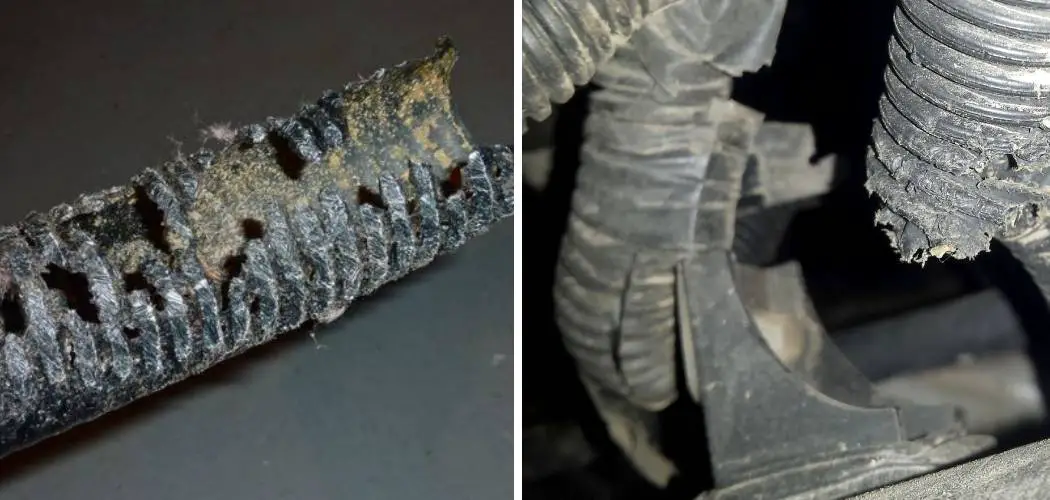Are you tired of dealing with the constant sound of mice chewing on your plastic pipes? Or worse yet, have you discovered evidence that they’ve done some real damage to them? If so, you’re not alone. After all, mice are crafty and clever creatures, and they’ll often find a way into our homes through even the smallest cracks or holes. But don’t despair; there is something you can do!
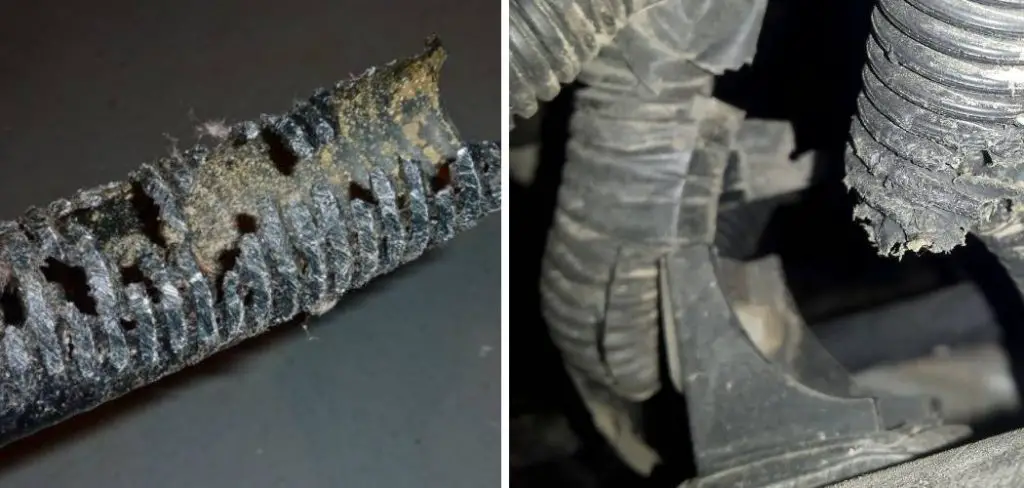
In this blog post we will explore how to stop mice chewing plastic pipes once and for all – so keep reading if certain furry friends have been making life difficult in your home.
9 Best Ways on How to Stop Mice Chewing Plastic Pipes
1. Find and Seal Off Entry Points:
The first step in stopping mice from chewing on your plastic pipes is to find and seal off any possible entry points into your home. Mice can squeeze through tiny holes or cracks, so make sure to thoroughly inspect the exterior of your house for any potential openings. This includes checking for gaps around pipes, vents, and crawl spaces. If you find any openings, seal them off with steel wool or caulk to prevent mice from entering.
2. Use Natural Repellents:
There are many natural scents that mice find repulsive and can help deter them from chewing on plastic pipes. Some effective options include peppermint oil, cayenne pepper, and ammonia. Soak cotton balls in these scents and place them near the pipes or in areas where you’ve noticed mice activity. Using natural repellents is not only safe but also environmentally friendly.
3. Install Electronic Repellents:
If you don’t want to deal with the mess or smell of natural repellents, consider using electronic ultrasonic devices. These devices emit high-frequency sound waves that are unpleasant for mice and can keep them away from your pipes. They are non-toxic and safe to use around pets and children.
4. Keep Your House Clean:
Mice are attracted to food and clutter, so keeping your house clean and tidy can help prevent them from entering in the first place. Remove any potential food sources like crumbs or spills, and regularly declutter areas where mice may hide or nest. Keeping a clean and organized home not only helps prevent mice from chewing on pipes but also promotes a healthy living environment.
5. Use Mouse Traps:
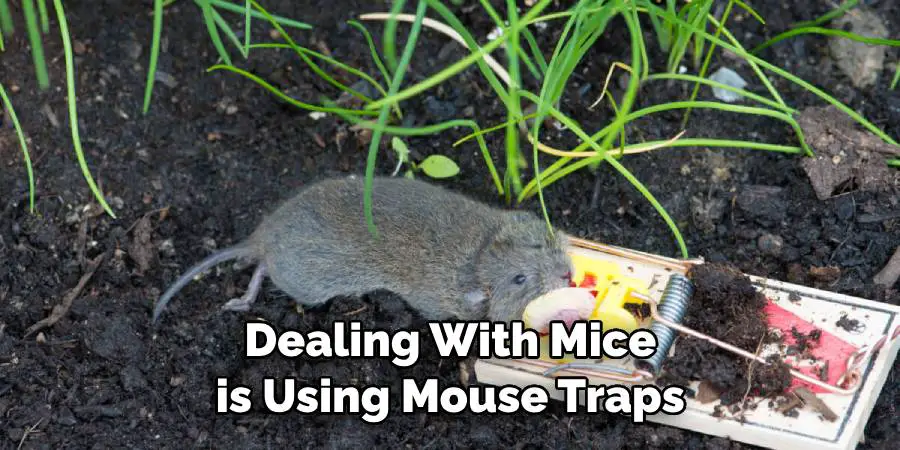
One of the most common methods of dealing with mice is using mouse traps. There are various types available, from traditional snap traps to electronic ones. Place them near areas where you’ve noticed mouse activity or near potential entry points. Remember to check and reset the traps regularly. Using bait like peanut butter or cheese can also increase the chances of catching mice.
6. Try Predator Urine:
If you live in a rural or wooded area, consider using predator urine to deter mice. The scent of predators like foxes or cats can signal danger to mice and keep them away from your pipes. You can purchase predator urine at outdoor supply stores or online. Trying this method can also help prevent mice from entering your home in the first place.
7. Use Chew-Proof Pipes:
If you’re willing to invest some money, consider replacing your plastic pipes with chew-proof ones. These pipes are made of metal or PVC and are much more difficult for mice to gnaw through. They may be a pricier option, but they can save you from dealing with damaged pipes and costly repairs in the long run.
8. Keep Your Pet Cat Indoors:
If you have a pet cat, keeping them indoors can also help deter mice from entering your home. Cats are natural predators of mice, so their presence alone can prevent mice from coming near your property. Plus, cats make great companions and can provide entertainment for your household. This is a win-win for you and your pipes.
9. Call in Professional Help:
If all else fails, do not hesitate to call in professional pest control services. They have the knowledge and resources to effectively deal with mice infestations and prevent future occurrences. They can also give you advice on how to keep your home free from pests, including techniques for protecting your pipes.
Following these tips can help you stop mice from chewing on your plastic pipes and save you from potential damage and headaches. Remember to regularly inspect your home for any signs of mice activity and take preventative measures to keep them away. With a little effort, you can successfully protect your pipes and have a mouse-free home. Happy pest-proofing!
Additional Tips and Tricks to Stop Mice Chewing Plastic Pipes
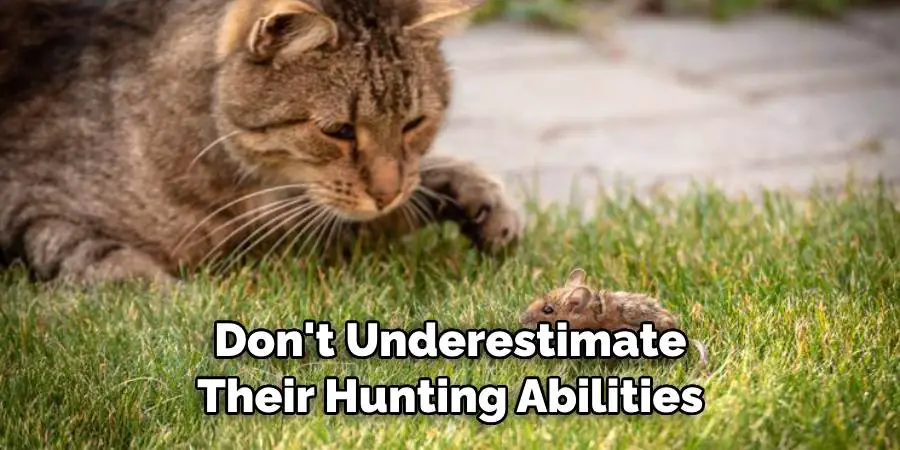
1. If you have a pet cat, don’t underestimate their hunting abilities. Cats are natural predators and can help keep mice away from your home. Consider adopting a cat if you want an effective and eco-friendly way to deter mice.
2. Peppermint oil is known to be a natural repellent for mice. Soak some cotton balls in peppermint oil and place them near the areas where mice are most active. The strong scent of peppermint will repel them and they will steer clear of your plastic pipes.
3. Another home remedy to deter mice is using a mixture of vinegar and water. Spray this solution around the areas where mice tend to chew on plastic pipes. The pungent smell of vinegar will keep them away.
4. Mice are attracted to cluttered and messy environments. Keep your home clean and organized to reduce the risk of a mice infestation. This includes regular vacuuming, decluttering and storing food in sealed containers.
5. Consider using ultrasonic pest repellents which emit high-frequency sound waves that can deter mice from entering your home. These devices are safe for pets and humans but can be highly effective in repelling mice.
6. Steel wool is a great material to use for sealing any gaps or holes where mice can enter your home. The rough texture of steel wool makes it difficult for mice to chew through, effectively blocking their entry points.
7. If you have fruit trees or other plants near your home, make sure to pick up any fallen fruits or trim any overgrown branches. These can attract mice and provide them with a food source, making your home more appealing to them.
8. Regularly inspect the exterior of your home for any cracks or openings that mice could use to enter. Seal these gaps with caulking or hardware cloth to prevent mice from getting inside.
9. Consider using humane traps to catch and release mice outside of your home. These traps are a safe and humane way to deal with a mice infestation without harming them.
Following these additional tips and tricks can help you effectively prevent mice from chewing on your plastic pipes. Remember to also consult a professional pest control service if you have a severe infestation that cannot be controlled through home remedies. Prevention is key in keeping your home mouse-free, so make sure to implement these measures regularly to maintain a pest-free environment. So, stay vigilant and take the necessary measures to protect your home and plastic pipes from pesky mice.
Frequently Asked Questions
How Can I Tell if Mice Are Chewing on My Plastic Pipes?
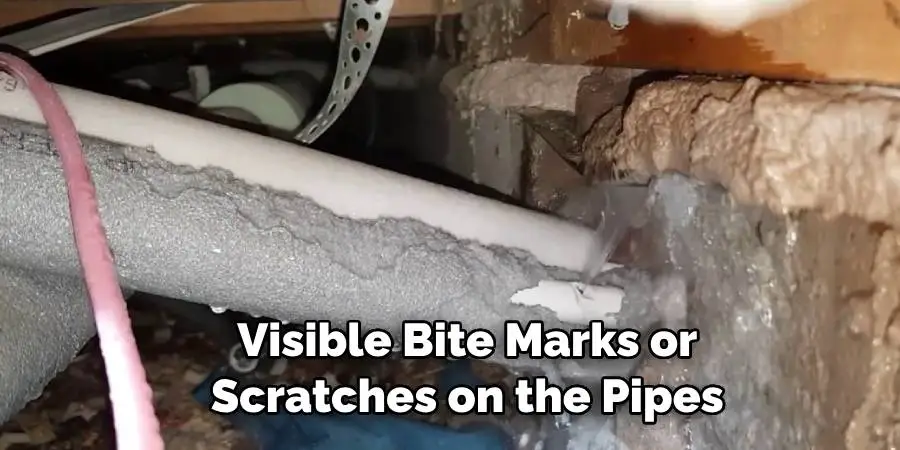
There are a few signs that you can look out for if you suspect that mice may be chewing on your plastic pipes. These include visible bite marks or scratches on the pipes, strange noises coming from within the walls where the pipes run, and damage to surrounding materials such as insulation or drywall. If you notice any of these signs, it’s important to take action quickly before further damage is done.
How Do I Prevent Mice from Chewing on My Plastic Pipes?
The best way to prevent mice from chewing on your plastic pipes is to make sure they are not able to access them in the first place. This can be done by sealing off any holes or cracks where mice could enter your home, and by keeping all food sources stored securely away. Additionally, you can also use deterrents such as peppermint oil or electronic devices that emit high-frequency sounds to repel mice.
What Should I Do if Mice Have Already Damaged My Plastic Pipes?
If you’ve noticed that mice have already damaged your plastic pipes, the first step is to repair or replace the affected pipes. Once this has been done, it’s important to address the root cause of the issue by taking preventive measures to keep mice away. This may involve sealing off any entry points, removing potential food sources, and using deterrents as mentioned earlier.
Are There Any Health Risks Associated with Mice Chewing on Plastic Pipes?
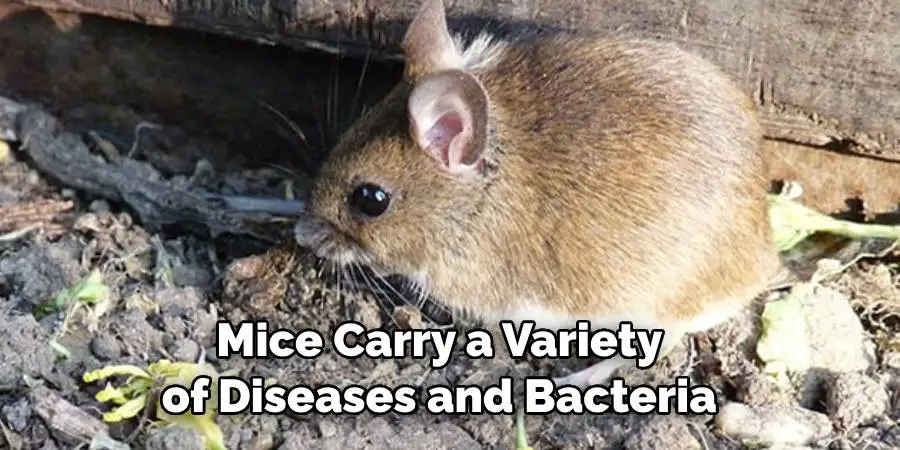
Yes, there can be health risks associated with mice chewing on plastic pipes. Mice carry a variety of diseases and bacteria that can contaminate your water supply if they come into contact with your pipes. In addition, their droppings and urine can also contribute to poor air quality in your home. It’s important to address any potential issues with mice as soon as possible to protect the health of you and your family.
Conclusion
With the above outlined you can easily understand how to stop mice chewing plastic pipes. Remember to always be vigilant for any signs of mouse activity and take action promptly to prevent further damage and potential health risks.
By following the preventive measures mentioned, you can ensure the safety of your home and family from these pesky rodents. So, don’t wait until it’s too late – take action now to protect your plastic pipes from mice! Let’s keep our homes safe and healthy by preventing mice from damaging our plastic pipes. Stay informed and take action to keep your home free of these unwanted pests!

